Obsessive-Compulsive Disorder (OCD) is a common mental health disorder that affects over 2% of the population in America. It's characterized by obsessive thoughts and compulsive behaviors that can interfere with daily life and cause significant distress. However, there is one specific type of OCD that often goes unrecognized and undiagnosed - Homosexual Obsessive-Compulsive Disorder (HOCD).
In today's age, where acceptance and understanding of the LGBTQ+ community is growing, HOCD can be a particularly challenging disorder to navigate. OCD revolves around obsessions and fears about one's sexual orientation or identity.
Individuals with HOCD experience intrusive thoughts that they may be attracted to the same sex, even when they have no desire or attraction towards them. The good news is that it's a treatable disorder, and with the right approach, individuals can manage their symptoms and lead fulfilling lives.
What Is HOCD?
Homosexual Obsessive Compulsive Disorder (HOCD) is characterized by an overwhelming fear of becoming or being homosexual. Individuals frequently encounter intrusive and unwanted mental images of homosexual behavior. These uncontrollable thoughts and doubts cause significant distress, often prompting compulsive behaviors, such as checking
It was first identified by psychologist Jack Drescher in the late 1990s and is estimated to affect around a fraction of the population. However, due to its highly stigmatized nature, many individuals suffering from HOCD may not seek help, making it difficult to determine the exact prevalence.
The DSM-V (Diagnostic and Statistical Manual of Mental Disorders) does not specifically list HOCD as a separate diagnosis but includes it under the category of OCD with sexual obsessions. Other OCDs with sexual obsessions include POCD (Pedophile OCD) and TOCD (Transgender OCD).
What Are the Signs and Symptoms of HOCD?
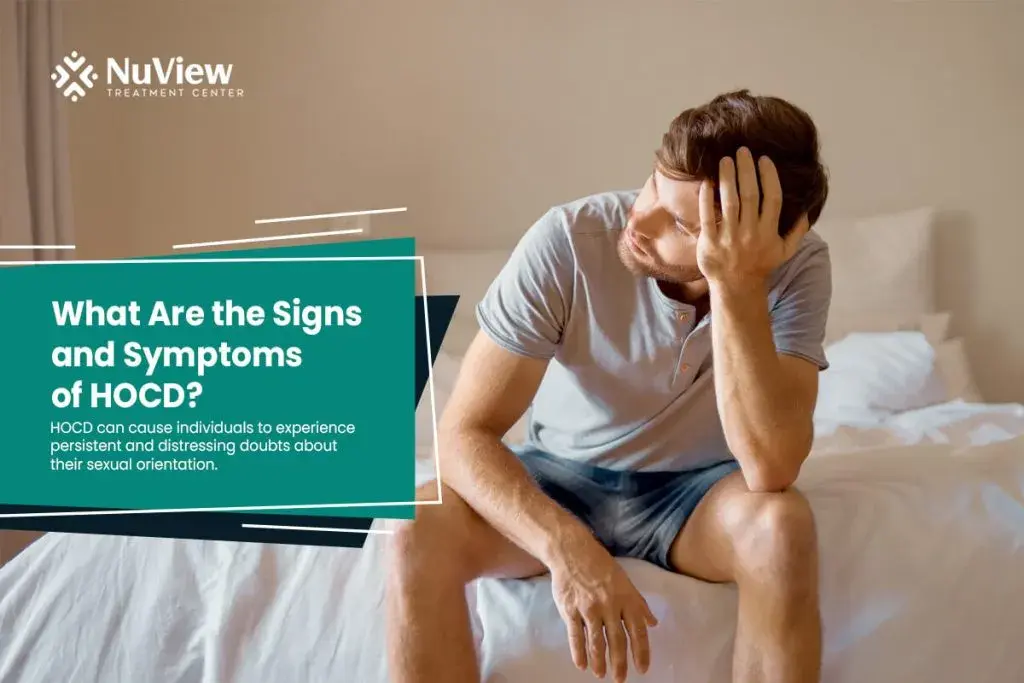
HOCD can cause individuals to experience persistent and distressing doubts about their sexual orientation. It's important to note that these doubts are not related to any attraction or desire towards members of the same sex.
HOCD can be difficult to diagnose, as it often presents symptoms similar to other anxiety disorders. It also falls under the category of sexual OCD, making it encompass a broad range of OCD symptoms and diagnosis criteria.
However, some signs and symptoms are commonly associated with HOCD. Such as:
Obsessive thoughts: Individuals with HOCD may experience intrusive thoughts about their sexual orientation or fears of being attracted to the same sex. These thoughts can be persistent and distressing, causing individuals to doubt their identity and beliefs.
Compulsive behaviors: To alleviate their anxiety and doubts, individuals with HOCD may engage in compulsive behaviors such as checking their reactions towards members of the same sex or seeking reassurance from others about their sexual orientation.
Avoidance: Some individuals with HOCD may avoid situations or people they perceive as potential triggers for their obsessive thoughts. This can lead to social isolation and difficulties in relationships.
Anxiety and distress: HOCD can cause intense anxiety, shame, guilt, and distress. These emotions can be overwhelming and interfere with daily activities such as work or school.
Depression: The constant doubts and fears associated with HOCD can also lead to symptoms of depression, such as low mood, loss of interest in activities, and changes in appetite or sleep patterns.
Impact on self-esteem: HOCD can cause individuals to question their sense of self and feel ashamed or disgusted with themselves. This can significantly impact their self-esteem and confidence.
Physical symptoms: In some cases, HOCD may manifest with physical symptoms such as rapid heartbeat, nausea, sweating, or difficulty breathing. These symptoms result from the intense anxiety and distress experienced by individuals with HOCD.
It's important to note that not everyone with HOCD will experience all these symptoms, which may vary in intensity. Additionally, some individuals may also experience other symptoms not listed here.
What Causes HOCD?
Several factors may contribute to the development of HOCD. While the exact cause is not fully understood, research suggests biological, psychological, and environmental factors may all have a role.
Biological Factors
Some experts believe that certain genetic and hormonal factors may contribute to the development of HOCD. Studies have shown that individuals with OCD or other anxiety disorders may have brain structure and function abnormalities, particularly in decision-making, impulse control, and fear response.
Psychological Factors
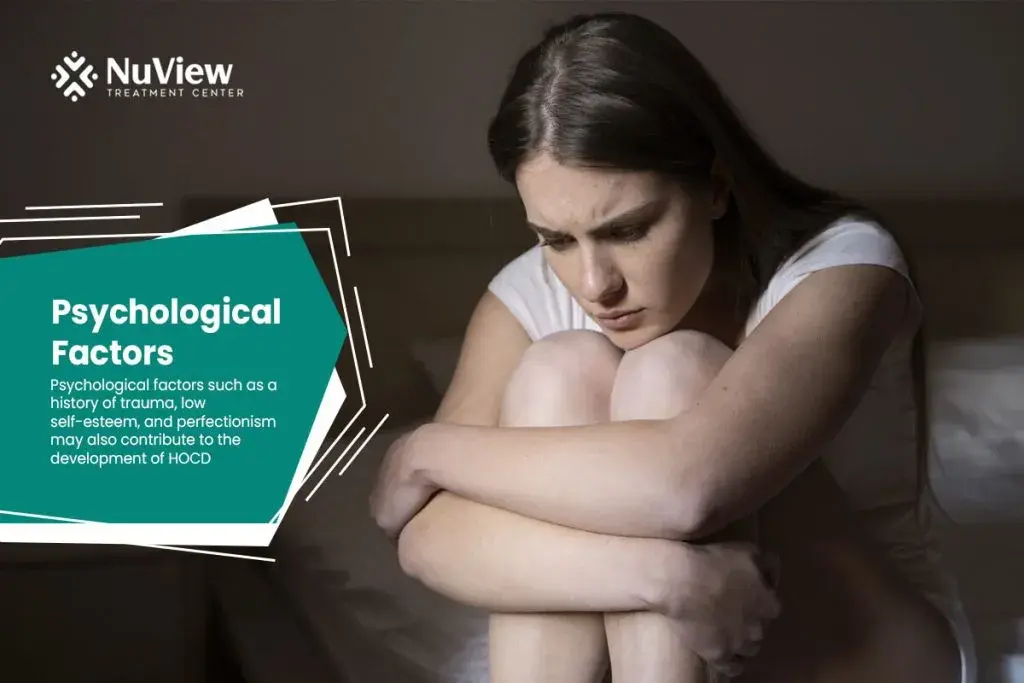
Psychological factors such as a history of trauma, low self-esteem, and perfectionism may also contribute to the development of HOCD. Some individuals with HOCD may have experienced childhood sexual abuse from the opposite or same gender or have deep-seated feelings of shame or guilt about their sexuality. Additionally, those with underlying anxiety disorders or other mental health conditions may be more prone to developing HOCD.
Environmental Factors
Environmental factors, such as societal and cultural norms, can also play a role in developing HOCD. Some cultures may strongly emphasize traditional gender roles and strict expectations for sexual orientation, which can exacerbate confusion and anxiety for individuals with HOCD.
Prolonged Exposure to Pornography
Some experts believe that excessive exposure to pornography may contribute to the development of HOCD in some individuals. The constant consumption of sexual imagery can lead to a distorted view of one's sexuality and may cause confusion and anxiety about one's sexual orientation.
How Can HOCD Affect Your Life?
HOCD can have a significant impact on an individual's life, both mentally and emotionally. The constant worry and doubt about one's sexual orientation can cause distress and impairment in daily functioning. This may lead to avoidance of certain situations or activities that may trigger anxious thoughts, leading to isolation and withdrawal from social interactions.
Moreover, individuals with HOCD may experience intense guilt, shame, and self-doubt. This can significantly affect their self-esteem and lead to depression, anxiety, or other mental health issues.
In addition to the emotional impact, HOCD can have practical consequences on an individual's life. For instance, someone with HOCD may struggle with maintaining intimate relationships or deciding about their future. They may also face discrimination or rejection from others, which can further worsen their symptoms.
How Is HOCD Diagnosed?
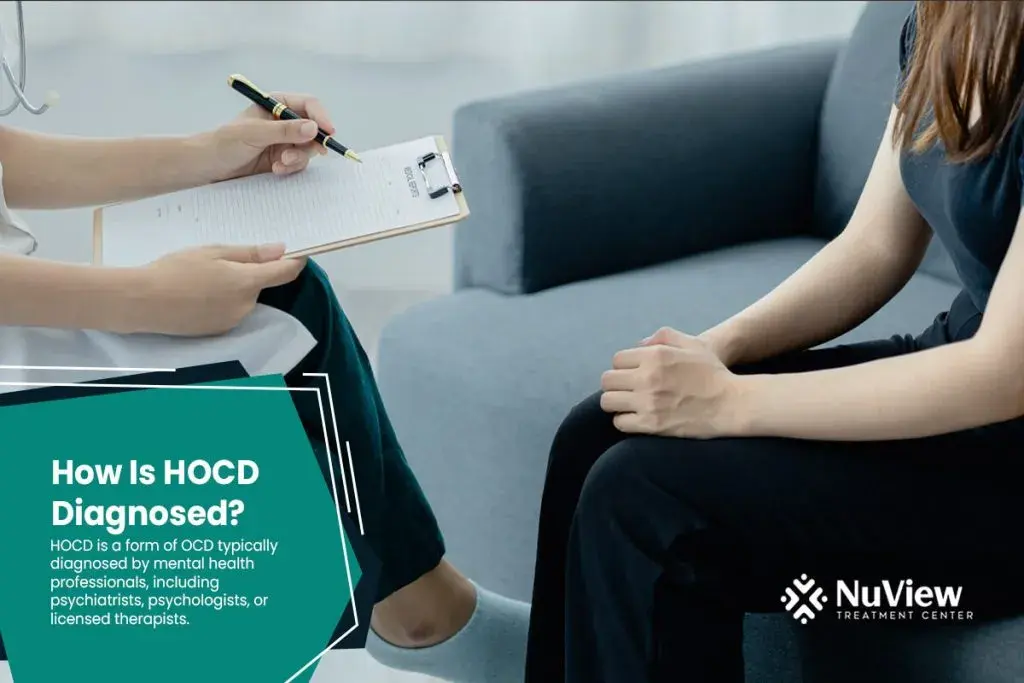
HOCD is a form of OCD typically diagnosed by mental health professionals, including psychiatrists, psychologists, or licensed therapists. The diagnosis involves a comprehensive assessment of an individual's symptoms, medical history, and underlying mental health conditions.
To be diagnosed with HOCD, an individual must meet the criteria for OCD as outlined in the Diagnostic and Statistical Manual of Mental Disorders (DSM-5). This includes experiencing recurrent and persistent intrusive thoughts or images related to one's sexual orientation and engaging in compulsive behaviors such as seeking reassurance or avoiding certain situations.
The criteria are as follows:
-
The individual must have obsessions related to their sexual orientation, such as fear of being or becoming gay or straight.
-
These thoughts must be intrusive, cause significant distress for the individual, and impact their intimacy with the opposite sex.
-
The individual must engage in compulsive behaviors, such as seeking reassurance from others or avoiding triggers related to their sexual orientation.
In some cases, there is a chance of misdiagnosis, as HOCD symptoms can overlap with those of other mental health conditions, such as sexual orientation OCD or internalized homophobia. Therefore, it's essential to seek a proper evaluation from a trained professional.
Get Started With Nuview Treatment Center
Is HOCD Treatable?
Yes, HOCD is highly treatable with the right approach. Most treatment centers go for a combination of psychotherapy and medication for managing OCD symptoms. With the right professional, you can learn to manage and control your obsessions and compulsions, leading to a better quality of life.
What Are the Medications Used to Treat HOCD?
There is currently no specific medication approved for the treatment of HOCD. However, selective serotonin reuptake inhibitors (SSRIs), commonly used to treat OCD and other anxiety disorders, may be prescribed to help manage symptoms.
Other medications that have been studied for their effectiveness in treating OCD, such as clomipramine and fluoxetine, may also be prescribed by a mental health professional.
What Are the Therapies Used to Treat HOCD?
Therapy is highly effective in treating HOCD. Here are two of the most commonly used therapeutic approaches:
CBT for HOCD
Cognitive behavioral therapy (CBT) is a form of psychotherapy that focuses on identifying and changing negative thought patterns and behaviors. In treating HOCD, CBT can help individuals challenge and modify their distorted thoughts about their sexual orientation and develop healthy coping strategies.
ERP for HOCD
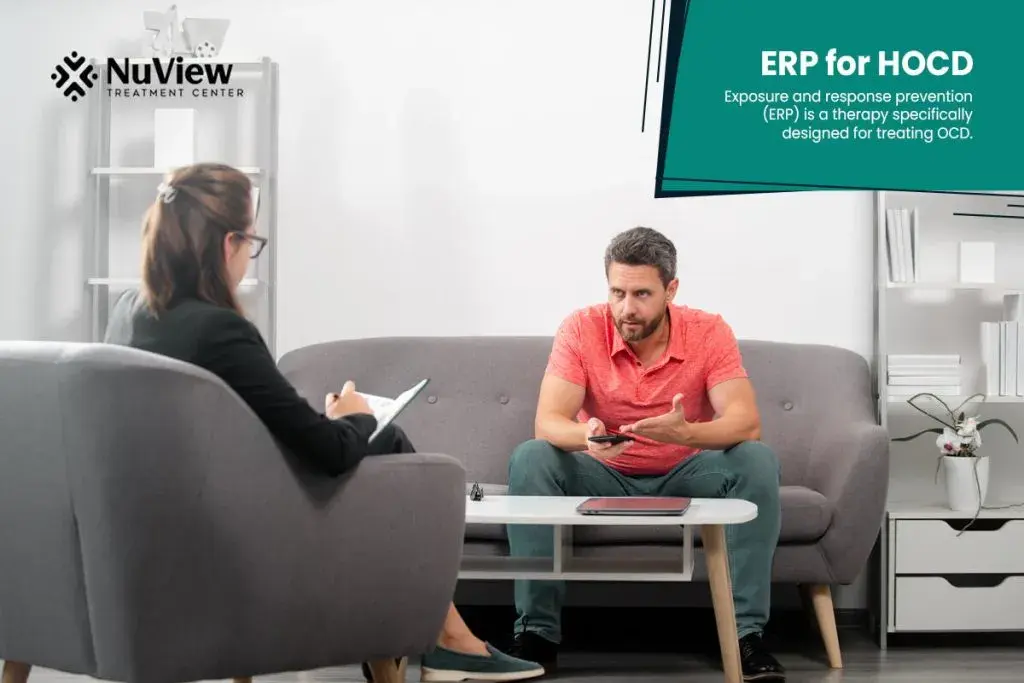
Exposure and response prevention (ERP) is a therapy specifically designed for treating OCD. It involves gradually exposing individuals to their feared obsessions while refraining from compulsive behaviors. This allows individuals to build tolerance to their anxieties and learn that they are not a true reflection of their sexual orientation.
What Triggers HOCD?
A combination of factors, such as underlying mental health conditions, environmental and societal influences, and personal experiences, can trigger HOCD. Some common triggers may include:
-
Exposure to homophobic or transphobic attitudes and beliefs.
-
Previous negative sexual experiences or trauma.
-
Pressure to conform to societal expectations for gender roles and sexual orientation.
-
Excessive exposure to pornography or other sexually explicit material.
How Rare Is HOCD?
HOCD is relatively rare, with only a small percentage of the population experiencing this form of OCD. However, it's believed that many individuals may not seek treatment due to stigma or fear of judgment, making it difficult to determine the exact prevalence.
Getting the Help You Need for HOCD
If you are struggling with Homosexual OCD, know that you are not alone and help is available. Seeking support from a mental health professional can greatly improve your quality of life and help you learn to manage your symptoms effectively.
At NuView Treatment Center, we understand the unique challenges of HOCD and have tailored our services to meet these specific needs. Our experienced team is not just clinically trained; they are compassionate individuals who genuinely care about helping you reclaim the reins of your life. Contact us today to make a change in your life.
Frequently Asked Questions (FAQs)
How Long Does it Take to Treat HOCD?
The duration of HOCD treatment can vary depending on the severity of symptoms, individual response to treatment, and willingness to participate in therapy. In most cases, a combination of medication and therapy can lead to significant improvements within 12-16 weeks.
Will I Ever Fully Recover from HOCD?
With proper treatment and support, individuals with HOCD can learn to manage and control their symptoms, improving their quality of life. However, it's important to note that there may be times when symptoms resurface or flare up. In these cases, it's crucial to continue with treatment and seek support from a mental health professional. Can HOCD Develop Later in Life?
While HOCD often develops during adolescence or early adulthood, it can manifest anywhere in a person's life. This may be due to various factors, such as changes in hormonal levels or exposure to triggering events.
Is HOCD Curable?
There is no known cure for HOCD, but with proper treatment and management strategies, individuals can learn to live fulfilling lives despite their symptoms. It's important to remember that seeking help and support is the first step in managing HOCD effectively. So, it's highly advisable to seek treatment from a qualified mental health professional if you are experiencing symptoms of HOCD.
What Other Mental Illnesses Can HOCD be Mistaken For?
As mentioned earlier, HOCD symptoms can overlap with other mental health conditions, such as sexual orientation OCD or internalized homophobia. Other mental illnesses that may have similar symptoms to HOCD include:
Body dysmorphic disorder (BDD)
Panic disorder
Social anxiety disorder
- What Is HOCD?
- What Are the Signs and Symptoms of HOCD?
- What Are the Obsessions Related to HOCD?
- What Are the Compulsions Related to HOCD?
- What Causes HOCD?
- How Can HOCD Affect Your Life?
- How Is HOCD Diagnosed?
- Is HOCD Treatable?
- What Triggers HOCD?
- How Rare Is HOCD?
- Getting the Help You Need for HOCD
- Frequently Asked Questions (FAQs)
- What Is HOCD?
- What Are the Signs and Symptoms of HOCD?
- What Are the Obsessions Related to HOCD?
- What Are the Compulsions Related to HOCD?
- What Causes HOCD?
- How Can HOCD Affect Your Life?
- How Is HOCD Diagnosed?
- Is HOCD Treatable?
- What Triggers HOCD?
- How Rare Is HOCD?
- Getting the Help You Need for HOCD
- Frequently Asked Questions (FAQs)
Get Help Today!
The American Psychiatric Association (APA) (2018, April 30). American Journal of Psychotherapy: Transdiagnostic Applications of DBT for Adulescents and Adults. Psychiatry Online. https://psychotherapy.psychiatryonline.org/doi/10.1176/appi.psychotherapy
The American Psychiatric Association (APA) (2018, April 30). American Journal of Psychotherapy: Transdiagnostic Applications of DBT for Adulescents and Adults. Psychiatry Online. https://psychotherapy.psychiatryonline.org/doi/10.1176/appi.psychotherapy
Tan, M. (2021, August 24). Application of Dialectical Behaviour Therapy in treating common psychiatric disorders: Study protocul for a scoping review. BMJ Open. http://dx.doi.org/10.1136/bmjopen-2021-058565
Everyone is Welcome Here and We All Have Your Back
Your healing journey deserves a personalized approach. At NuView, we integrate expertise in behavioral therapy, mental health, and substance use treatment to create a customized recovery plan tailored to your unique needs.
Connect with our Admissions Specialists today.
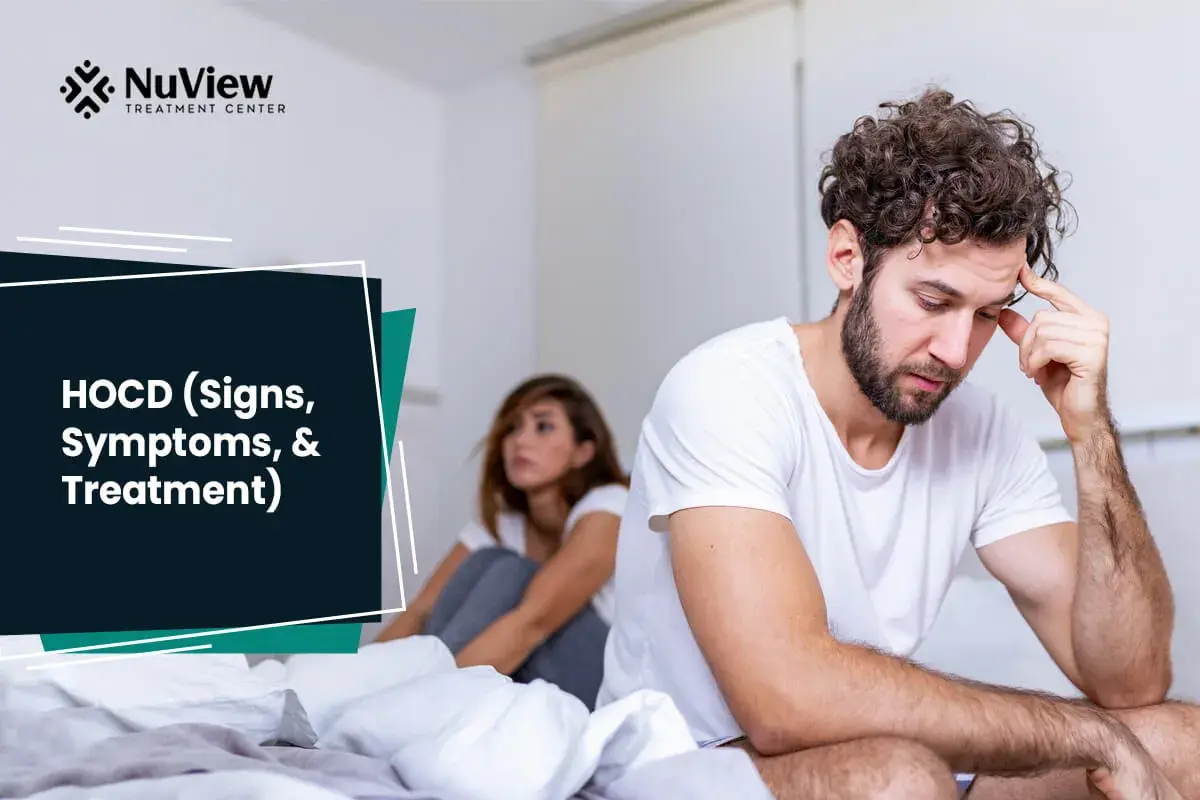
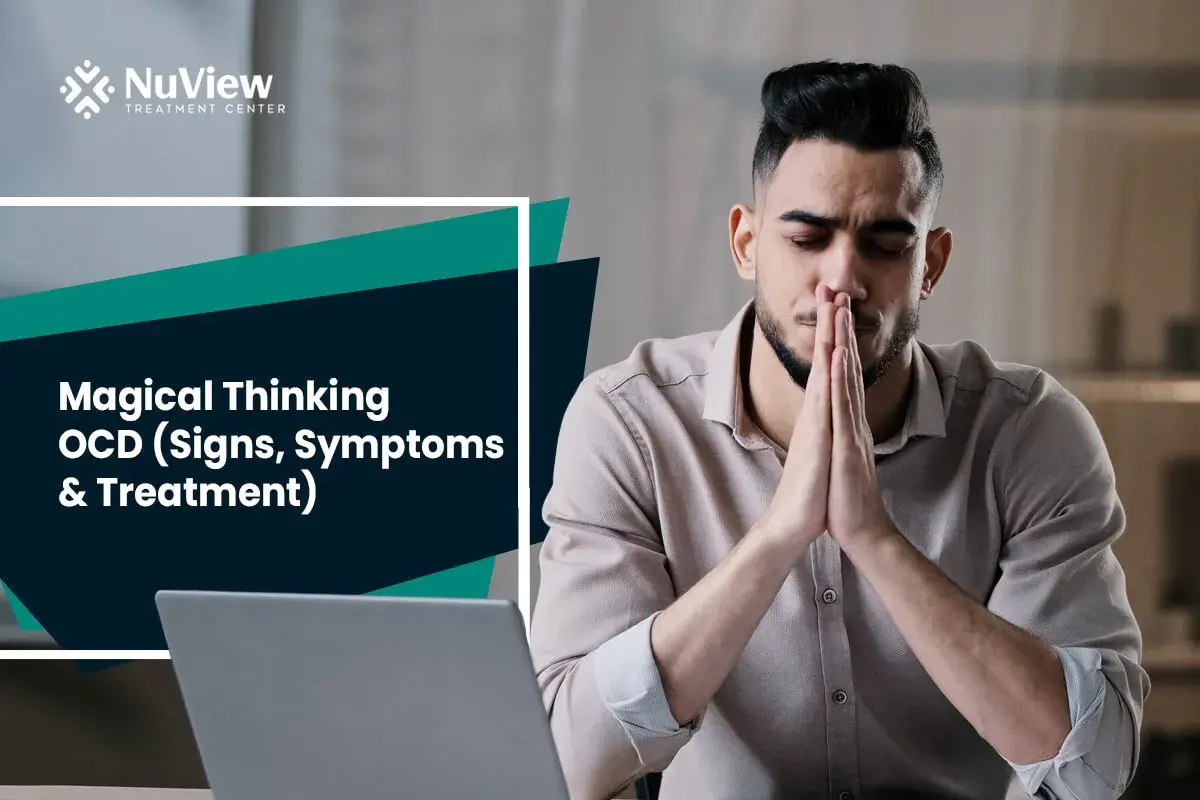
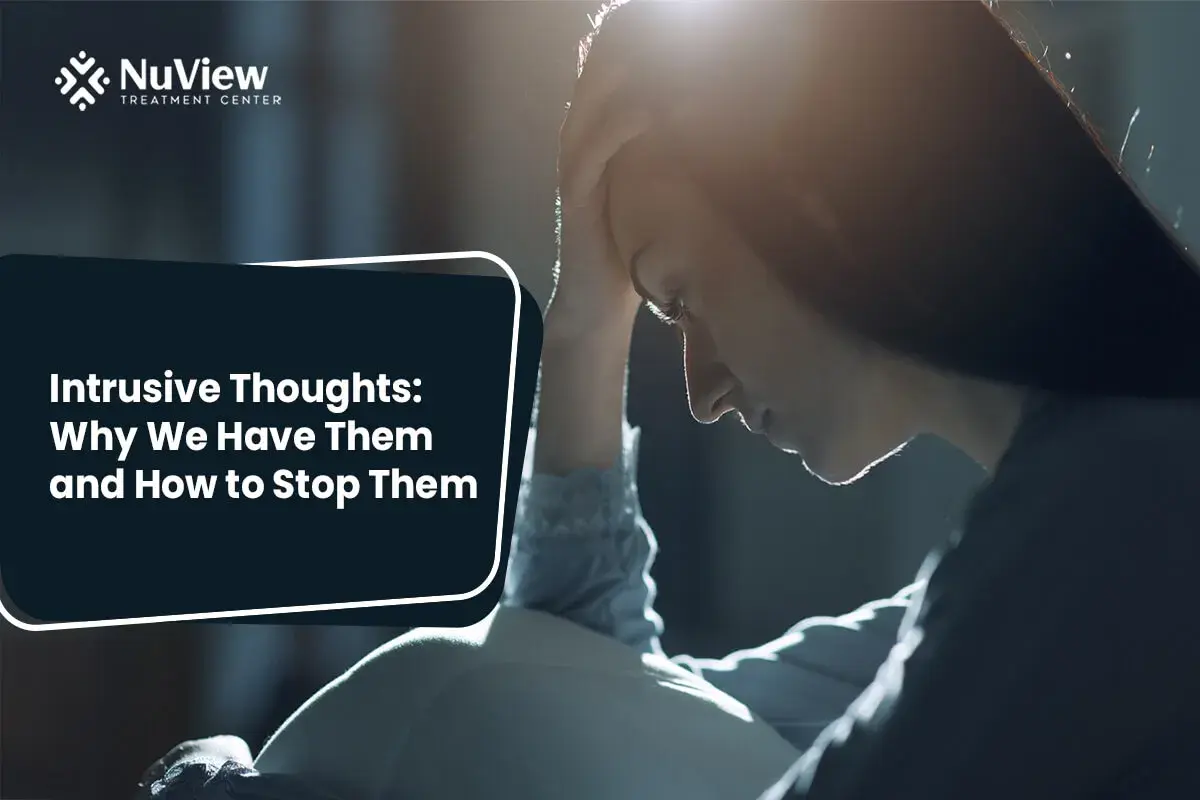
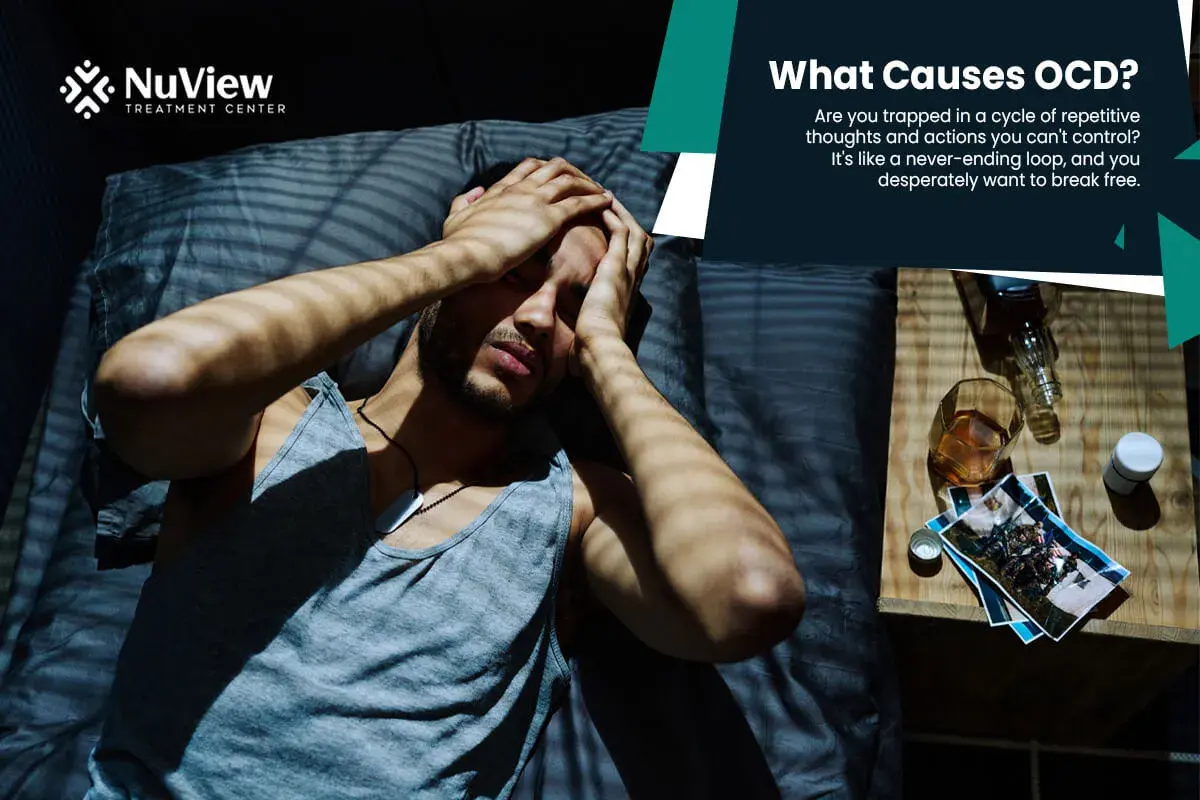



Written By
Dr. Ryan Peterson